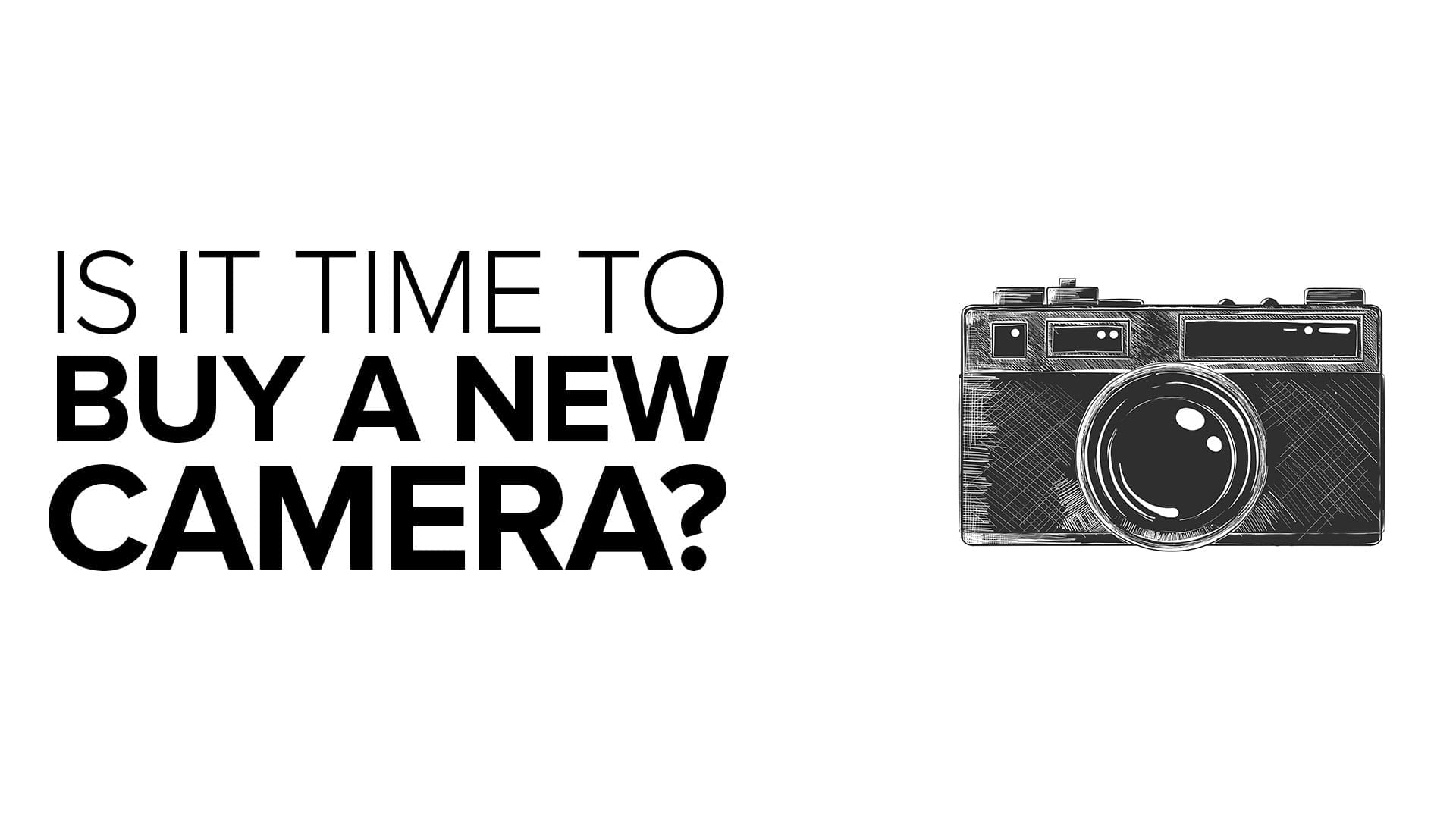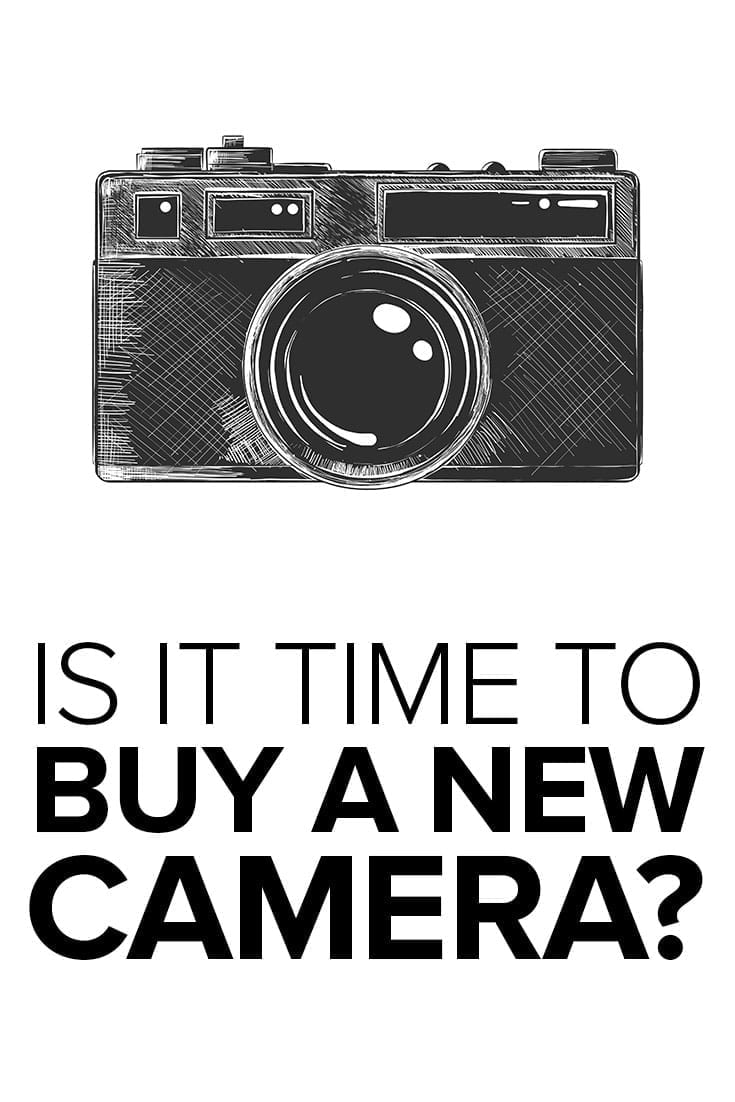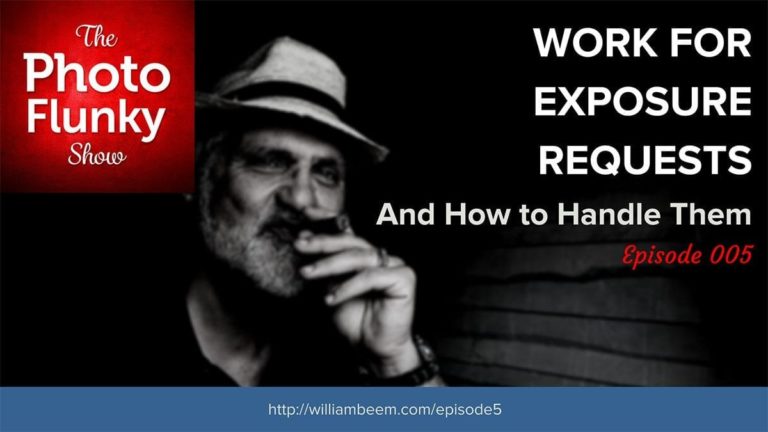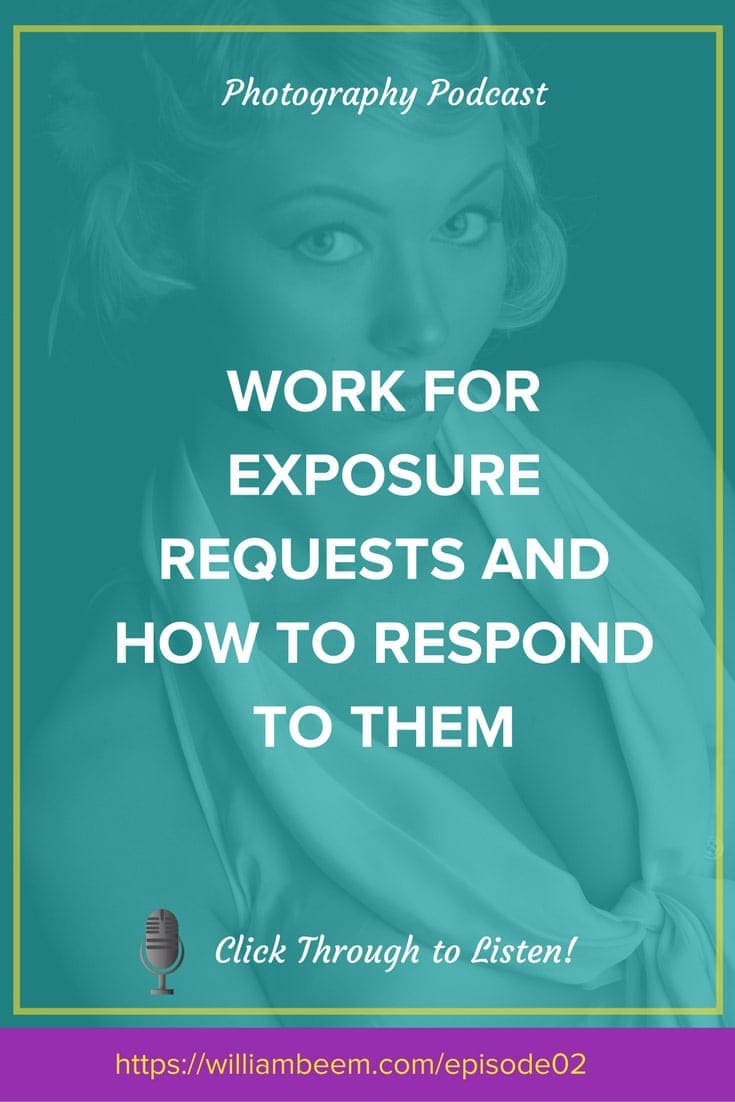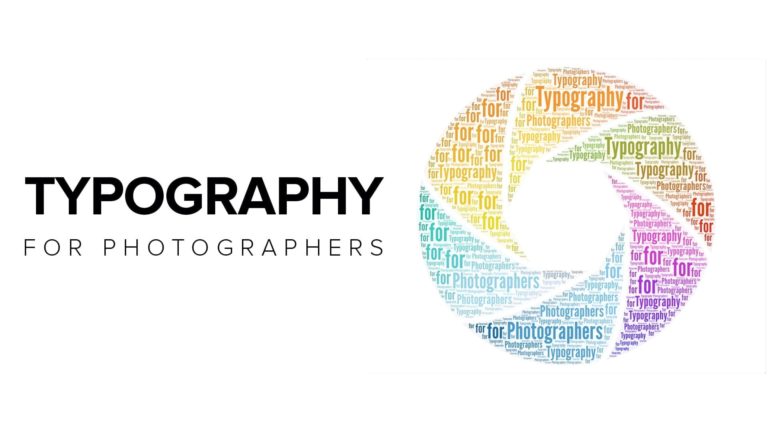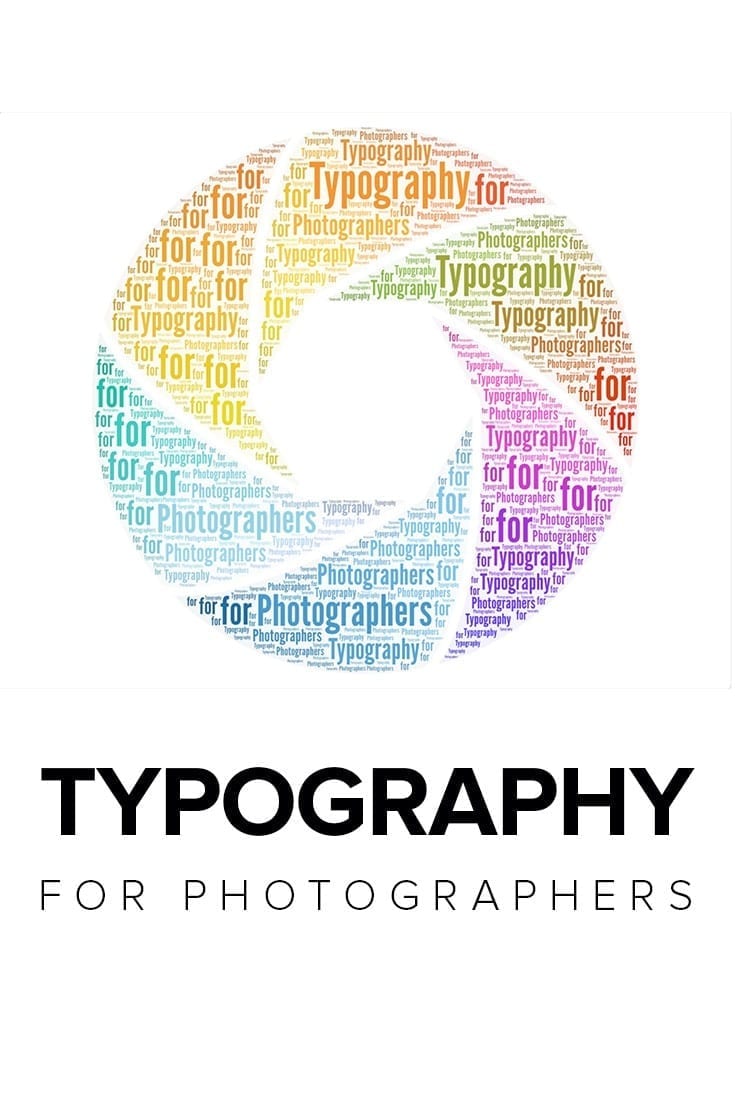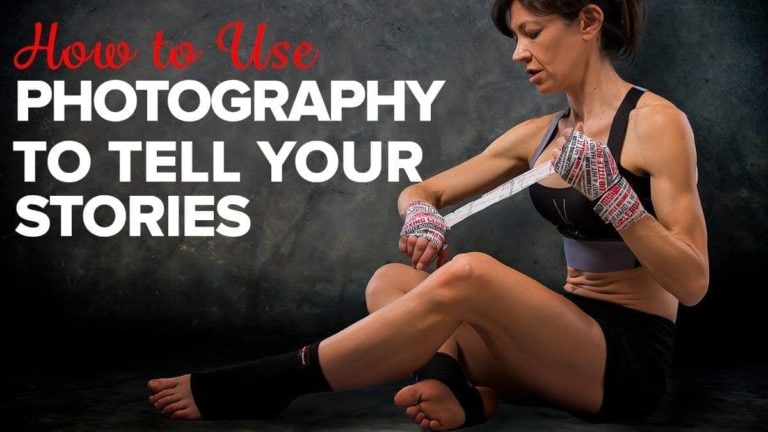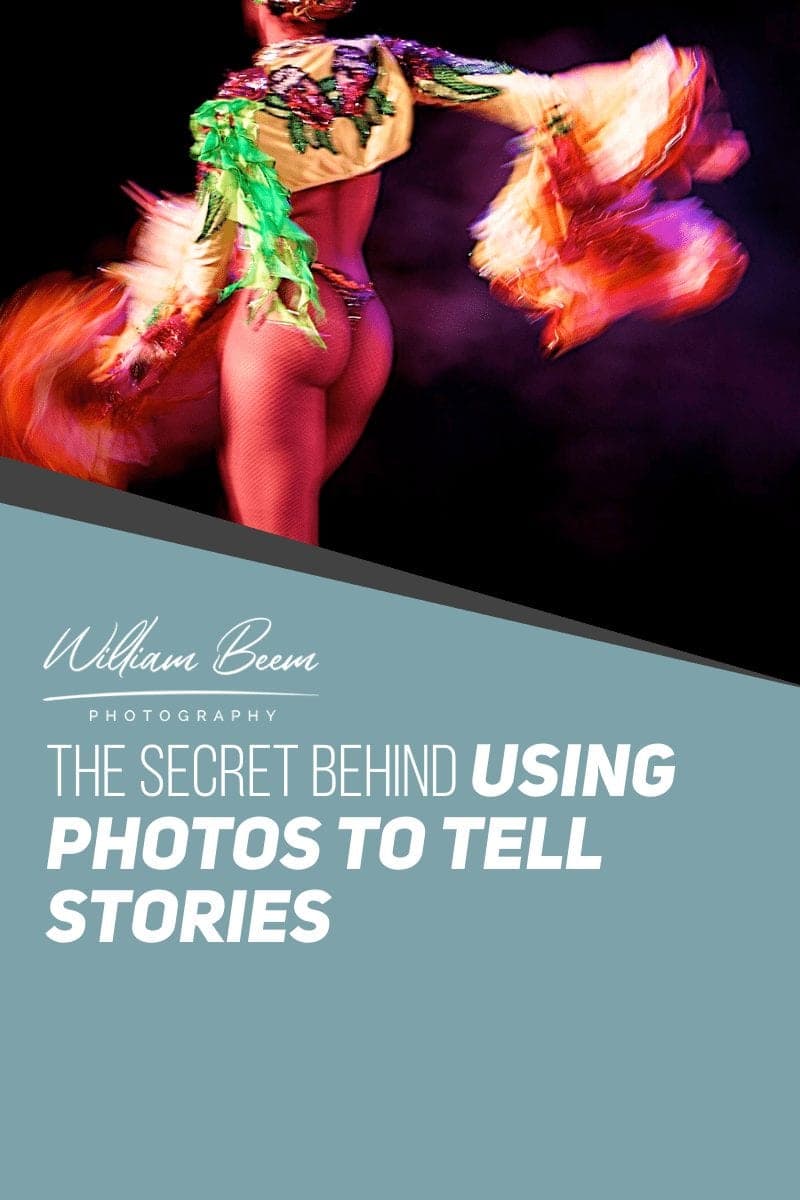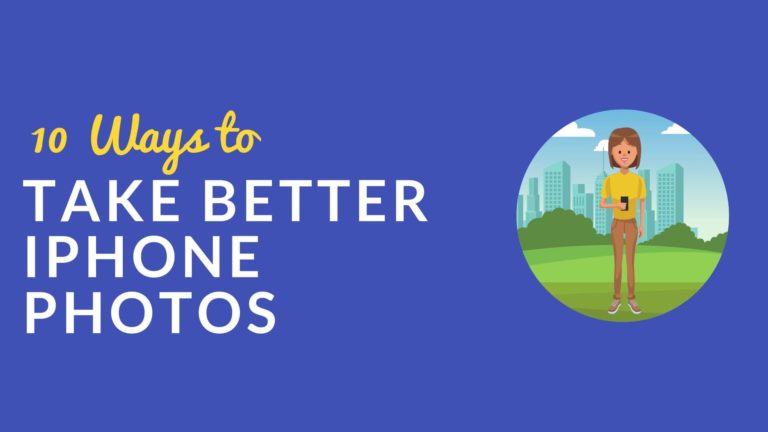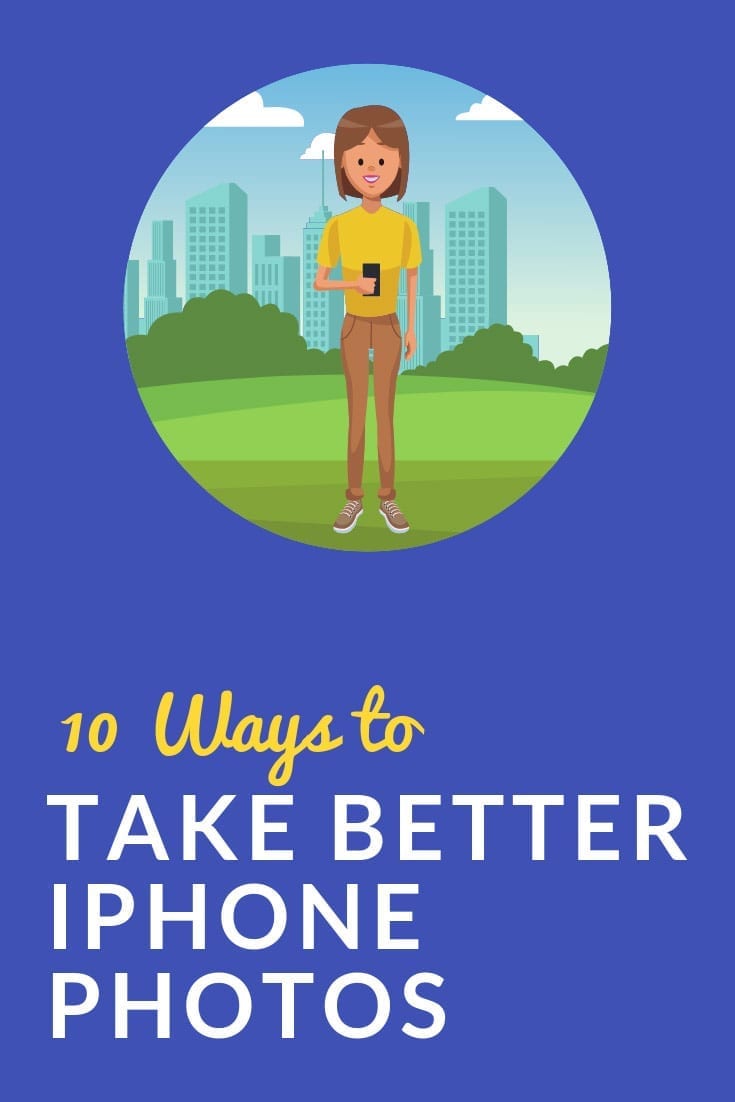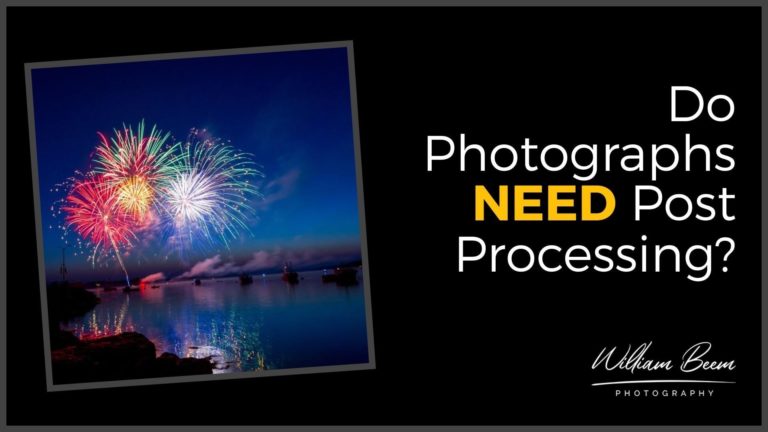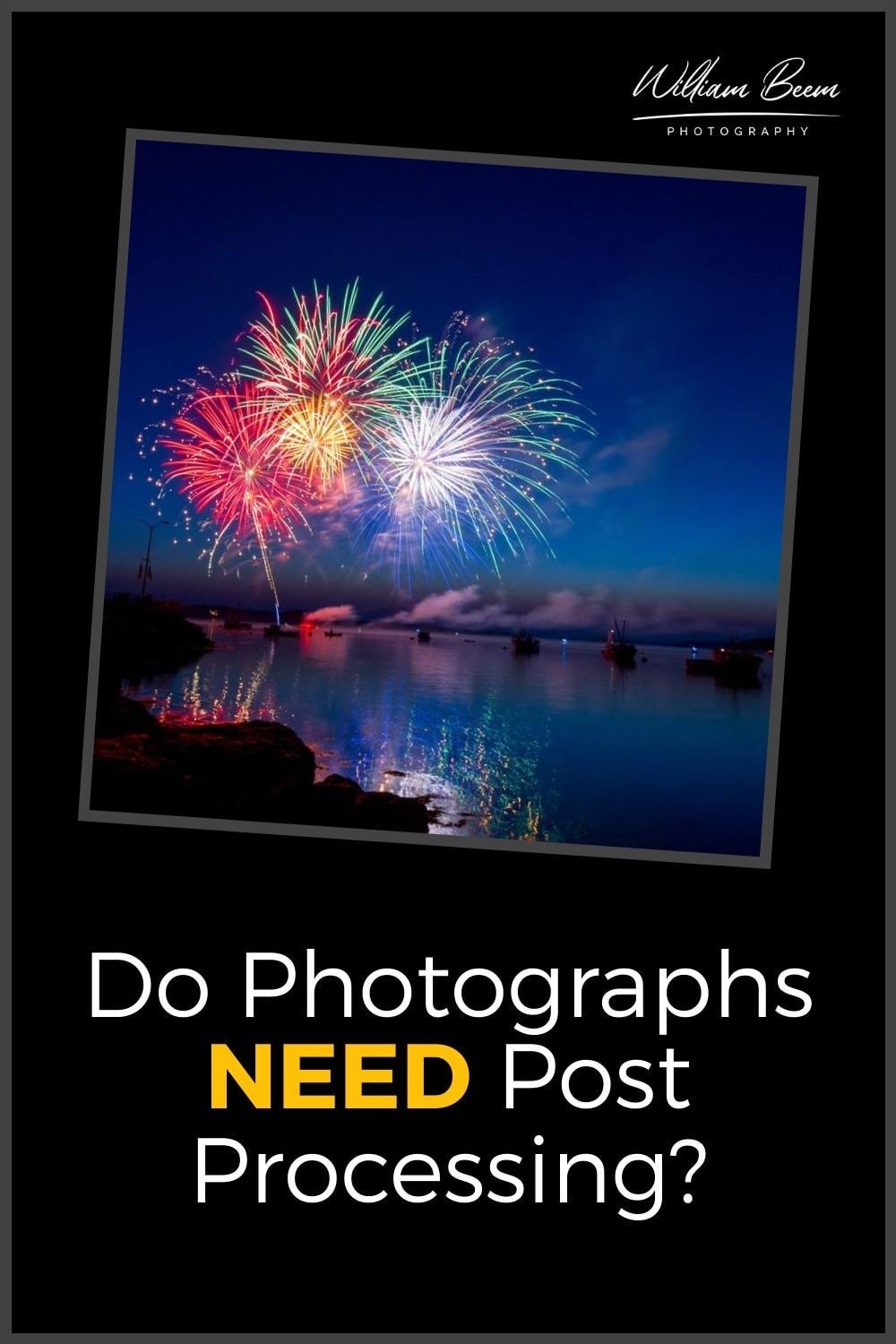Affiliate Disclosure: We earn a commission if you purchase through one of our links at no additional cost to you.
So you want to buy a new camera?
After all, who doesn’t love the smell of a fresh DSLR or mirrorless camera as it comes out of the box? Do you remember the sense of anticipation you felt as you first unpacked your camera when it was new? Never mind that you had to learn how to use it.
That’s just part of the anticipation.
Of course, that anticipation only matters if you had a pretty good reason to buy the camera. That’s what we’re going to talk about today.
Do You Need to Buy a New Camera, or Do You Just Want It?
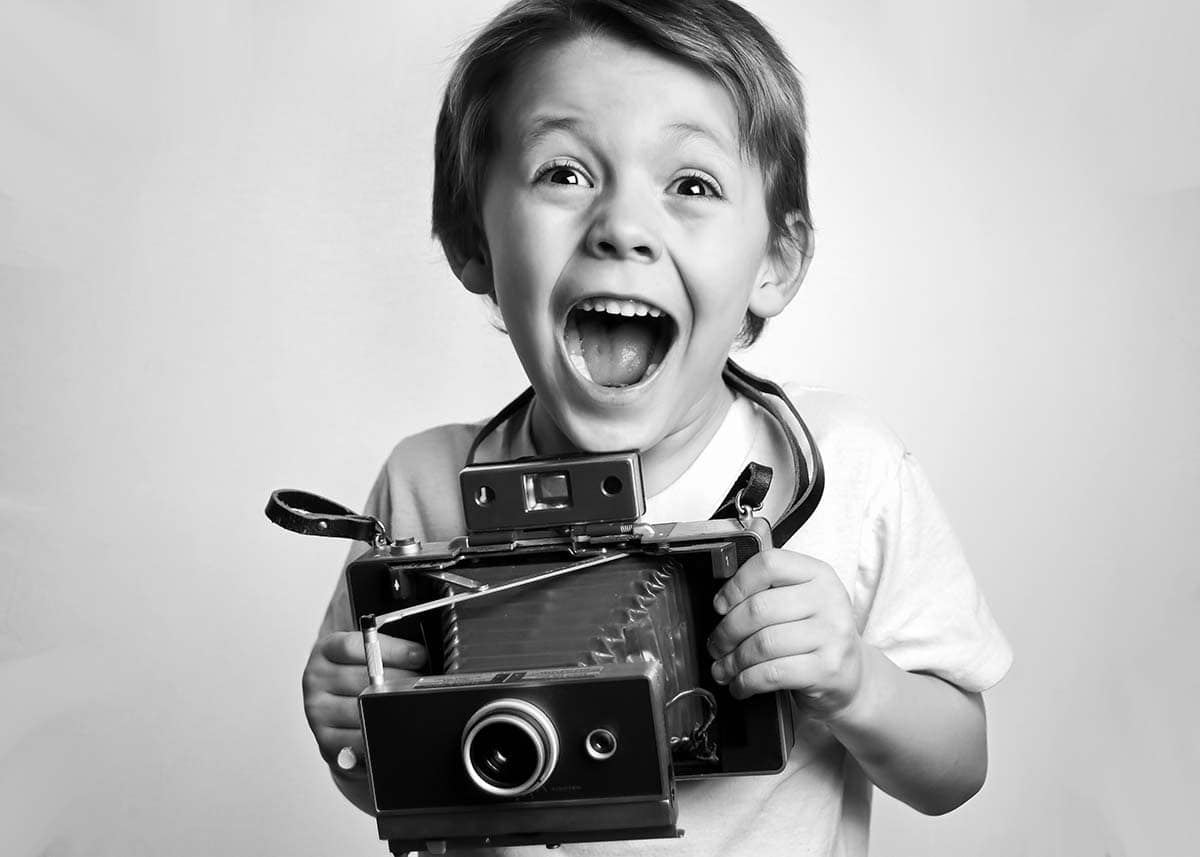
Let’s get this part of the discussion out of the way right off the bat.
I say you should go for it if you just want it. Many times have I bought something because, well…I wanted it. Satisfying that inner desire is a wonderful thing.
As long as you have the money to afford it.
There’s nothing rational about “I just want it”, so I wouldn’t dare try to talk you out of it. Buying something because you want it is really an emotionally satisfying decision.
At least, if the purchased item lives up to expectations.
If you buy a new camera because you want it and then have regrets, then you’re going to wish that you bought it from a place where you can return it.
So for the “I just want it” buyer, that’s my only advice. Buy from a place that accepts returns.
As for those of you who have rational decisions to make, let’s go over some of the reasons why you may want to buy a new camera.
Will Buying a New Camera Change Your Photography?
This is the first question you need to ask before you even go shopping. If you’re trying to make a logical or rational decision about purchasing a camera (or anything else), you need to understand the benefit you expect.
If nothing else, that sense of requirement to fulfill helps you make sure that you’re buying the right new camera. Let’s examine some rational reasons you may need a new camera.
The first two reasons won’t change your photography. They just enable it.
1: Your Old Camera Broke
Makes sense. When your camera doesn’t work, you are no longer a photographer. Maybe you just need a replacement or want to step up to a new model. If that’s the case, you want something that works with your existing gear or brand.
2: You Need a Backup Camera
Same logic as #1 – you are no longer a photographer when your camera doesn’t work. Accidents happen, and so does bad luck. If something takes your primary camera out of commission, you need a backup to keep on taking photos.
Ideally, it will work with your existing lens and gear collection. It doesn’t have to be the same model. My primary camera is a Nikon D800 and my backup is a D700. Both are old, but both work and I can take the photos I need with either camera.
They take the same lenses, work with the same radio trigger for my flashes and strobes, and the only difference is the photo size (12 megapixels vs 36 megapixels).
3: It’s Time to Go Mirrorless
A lot of people want to go mirrorless.
I’m not sure why.
There are some good reasons. For example, mirrorless cameras can shoot in silent mode. That’s great if you need to photograph a subject without disturbing it. An example that comes to mind was a photo that Dave Black took of a pro golfer in the backswing of a drive.
Typically, this was forbidden because of the noise that the shutter makes. Pro golfers have a lot at stake and it’s just respectful to avoid making noise when they’re concentrating.
Dave got his shot with a silent camera.
The same thing may work for some wildlife photography or any other environment where the clacking sound of a shutter just isn’t acceptable.
Other people like that mirrorless cameras may enable new opportunities for lenses with wider apertures. Getting the flange closer to the sensor (and having a wider flange) may mean getting some f/.095 aperture lenses instead of f/1.4.
Yet another benefit simply has more auto-focus points to use. The Nikon Z7 allows you to cover almost all of the sensor. No more focus and recompose because the auto-focus points won’t reach.
4: Buy a New Camera Because It’s Time to Change Brands
This is a big step, but worth considering. In the early 2000’s, a lot of Nikon shooters decided to switch to Canon because they felt that the quality was better “over there.” Canons had less noise on their sensors, and one photographer claimed that Canon lenses were so good you could just lick them.
I didn’t switch, though.
A year or so later, Nikon’s sensors were suddenly back on top – or at least as good as Canon. It’s pretty expensive to switch systems for a year or so, and then wish you hadn’t done it.
Many people recently switched from Canon or Nikon over to Sony’s mirrorless line.
Sony photographers can create images just as beautiful as photographers using any other brand. For a while, some photographers loved Sony’s Eye Auto-Focus as a prime driver to switch. Now we see those features coming to Canon and Nikon, too.
My own experience with Sony was frustrating. The camera was not bad, but it was clunky and didn’t feel good in my hand. The auto-AF just didn’t work for me at the Sony Be Alpha event, and I was underwhelmed with my Sony experience.
I’m grateful Sony puts on these events to give people a chance to use their gear, but it didn’t sell me. If anything, I’m glad to stick with Nikon.
The results I got from Sony were nice quality images. No better or worse than my Nikon images. I just didn’t see a benefit that would lead me to switch.
Your mileage may vary.
The Most Important Reason Why You Should Not Buy a New Camera
Buying a new camera will not make you a better photographer.
The magic isn’t inside that box of plastic and glass. When you think about it, all the features in a camera come down to the exposure triangle.
Everything else is there for your convenience. I think convenience is a very good thing. Convenience may be the difference between getting a photo or not. However, it doesn’t make the photo any better.
What truly matters is your eye for composition and exposure. Your timing is crucial, because photography is about capturing the right slice of time.
The camera won’t do any of that for you.
Maybe you need better low-light performance to capture the photos you want. That was a concern for me, and one of the reasons I switched from Nikon crop sensor cameras to full frame. It was a great benefit. So was the improved bokeh I found after switching to full frame.
Still, my camera doesn’t take nice pictures.
I’ve set it on a table and told it to take a nice picture, but it refuses. Even on Auto mode, it won’t even click the shutter. Somehow, it expects me to compose and decide when to take the photos.
Don’t buy a camera expecting better photos if you can’t take photos you like now.
The same thing is true for guitarists. The manufacturers like to lure players into spending a lot of money for celebrity replica guitars. You, too, can play like Eric Clapton if you buy his Custom Shop Stratocaster!
It doesn’t work.
Playing the guitar well is like doing photography well. You develop over time as you learn what works and what doesn’t. You can’t buy your own talent. Don’t buy into the hype around the latest camera brand or fad.
It all comes down to your talent.
It’s OK to Hold On to Old Gear
I mentioned that I’m still using a Nikon D800 with a D700 backup.
That’s because I have no compelling reason to upgrade. Let’s face it, cameras are expensive! You can spend thousands of dollars on one camera body, which may not benefit you.
My Nikon D800 isn’t worn out. The files are still good, the shutter keeps clicking and I get the results I’m capable of getting.
Are there new features that I’d like?
Oh, yes. For example, I’d love to have a camera with an articulating LCD. That comes in handy when you need to put the camera in a position that isn’t conducive to putting your eye in the viewfinder.
I like ground-level photos now and then, since it’s an unusual angle. I think it gives my subjects a sense of power and authority.
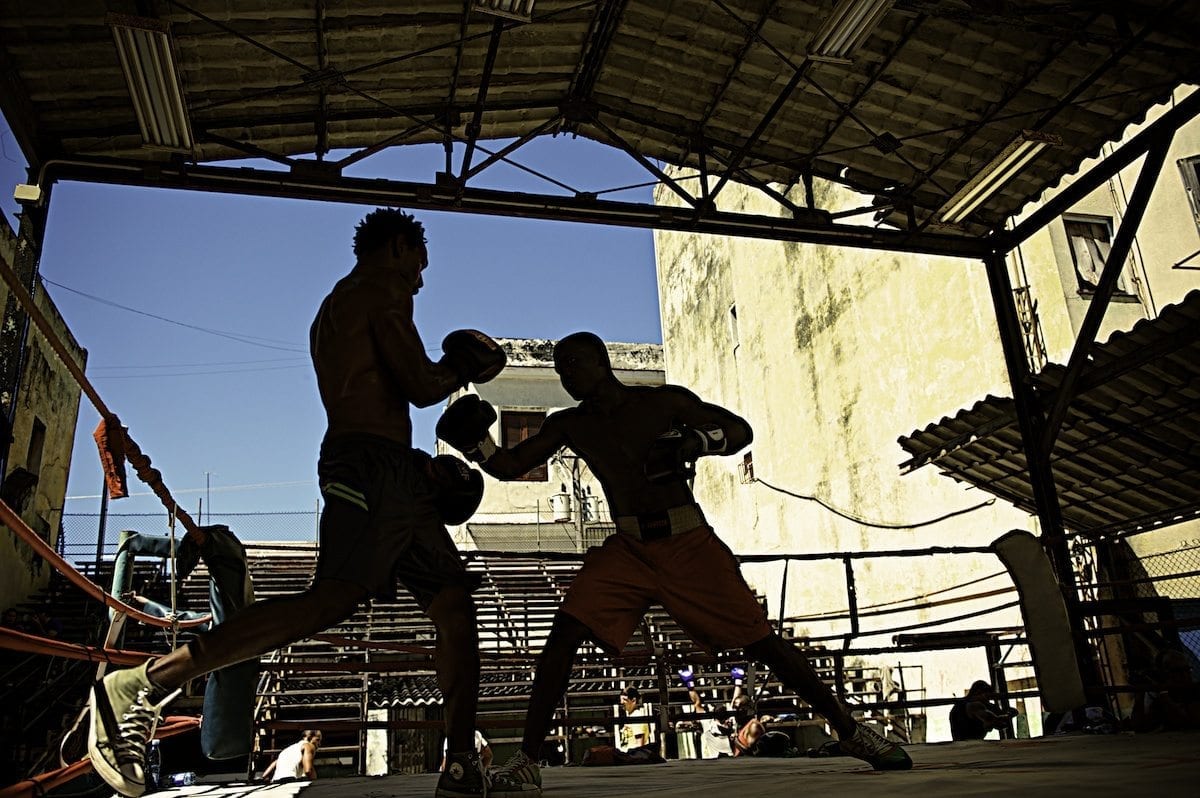
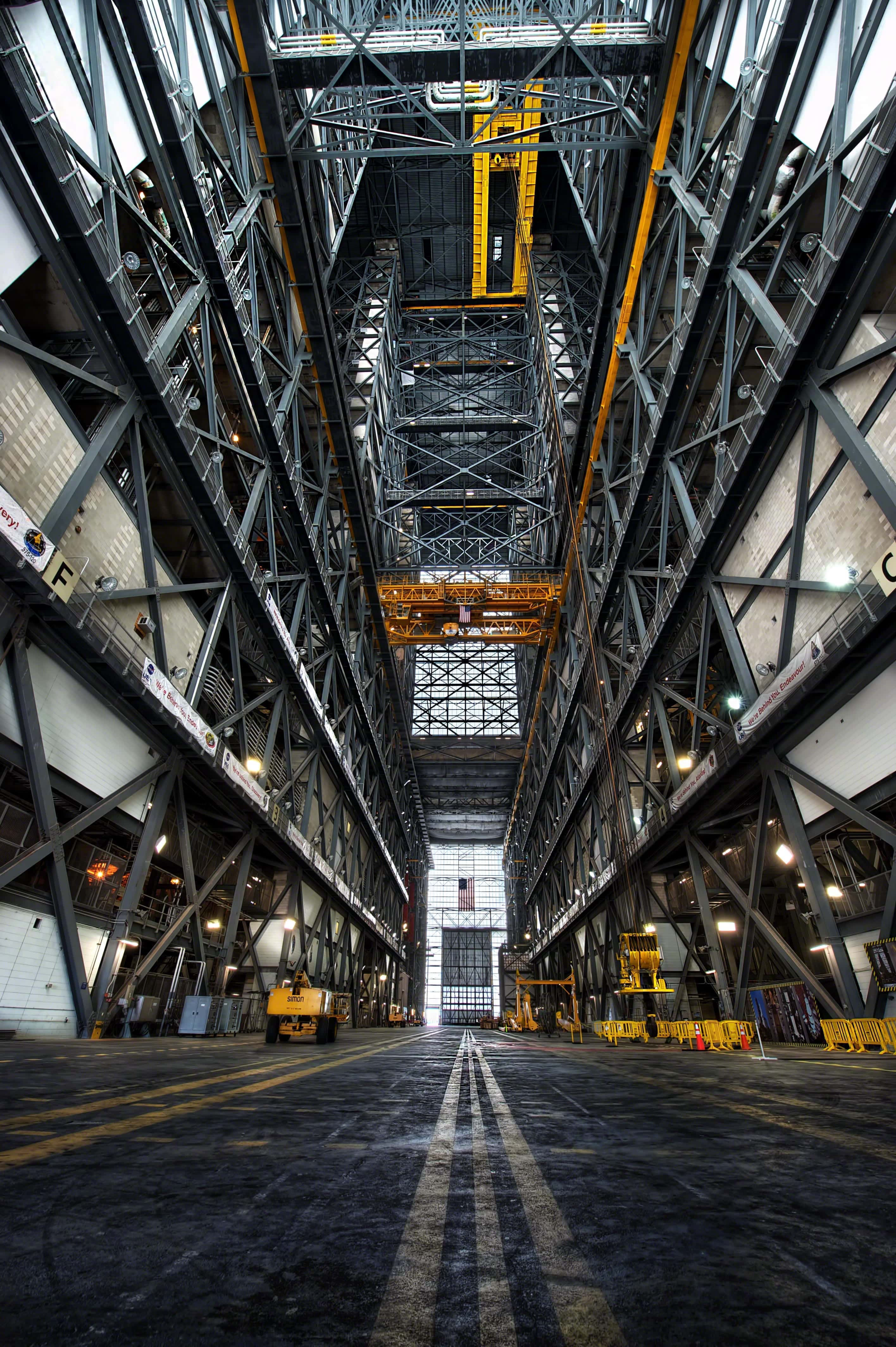
In both of these photos, I was essentially guessing my composition. I shot a few frames and got what I wanted, but an articulating LCD would’ve allowed me to compose properly for my photos.
That’s nice, but is it worth a few thousand dollars to me?
I think not.
It may take a couple of clicks, but I can still get the shots I want. It’s a nice feature, but the value for that feature compared to the cost I’d pay just isn’t worth it to me. For someone else, it may be essential.
It’s up to you to decide if the new features or benefits you receive have enough value to trade your money. That’s the ultimate decision to know when it’s time to buy a new camera.
Transcript
It seems like every month there's a new camera being introduced, whether it's a mirrorless camera or a DSLR. And one of the things that we wanted to go into is whether it's timed to buy a new camera or not. I'm William Beem. Welcome to I Like Your Picture. The show that helps you improve your photography with visual storytelling. What is visual storytelling? It's a method of approaching your photography with a knowledge of who you're trying to serve with your photos and what emotion you want to make them feel.
We encourage you to concentrate on your subject light and background to create a photo your audience loves. I'm glad you found us. Hi, my name is William Beem. Hi, my name is Lee Beem. And if it sounds like she's laughing, she is because she kept screwing up the introduction to this show. It's like she's making noises. Every time we play that music that comes into the show,
she starts dancing around to it and then next thing you know she's, she's clunking gaffer tape on some of the furniture. But besides, you know, all that kind of shenanigans, we are here to help you improve your photography with visual storytelling. And today's episode, we kind of want to talk about three things with regard to whether it's time to buy a new camera.
And the first question we want you to consider is how will a new camera change your photography? Can you identify the benefits or features that help your photography? And also sometimes do you need to decide, you know, should you switch brands or sh switch systems that you're using for their gear. So sometimes there are valuable reasons why you want to do that.
We're going to go over a few of those today and that's all assuming that leak and hold it together and not laugh her way through the episode. Just do your best. Very serious. Usually she's very serious. So the first thing we want to come up with is do you need a new camera or do you want a new camera? And I'll be the first one to tell you when it comes to want.
I've spent a lot of money on what? Because I could, well if he can, there's no reason why not. I agree. I mean if you come down to it and of all things we were looking at or I was looking at a roller board suitcases and I came up with one and it cost $500 and I told Lee that and she went through the roof and not,
not in a mad way. Just kind of like you want to spend how much on a roller board. I thought he was kidding. I didn't even know that. That you got like roller boys for half that price. Well there's like a roller board. I thought like I couldn't conceive spending that on a full size suitcase cause I've traveled so much. Yeah,
I'm kind of used to, you travel with the bag, it gets damaged by the airlines. You make a claim and get a new one repeat all over the next time. That's kind of how it works and I'm not going to go into it right now. Maybe, maybe towards the end of the show if anybody wants to listen to it then. But right now it really was.
I wanted, it wasn't that I had a practical reason, my mind, I had practical reasons, but in Lee's mind you can buy a lot of replacements for that roll of board for the price of how much it costs. But sometimes you buy things just because you want it, but how do you know when you need a new camera? Oh, first of all,
here's this completely broken. Yeah, if it's dead, that's a good thing. That's a good thing. You need a camera, you need one that works. And also I'll give you this. You need a backup camera if you're going to be a professional photographer because of the point that your camera fails, you are no longer a photographer if you don't have a backup reach for.
So I have two cameras and they're both old. Uh, one is a D700. That's now my backup camera. It's only a 12 megapixel camera. It takes beautiful photos. There's nothing wrong with it. And my primary one is the D800 which has also, you know, a number of years old. Now it's nowhere near the current feature set that something's happened.
But both those cameras take wonderful photos. Yeah, I mean do you want the camera to take, you know, so that you can take photos or do you want a specific camera because you like little bells and whistles and some people want the one, some people want the other and most of us are kind of middle of, There were times when the bells and whistles are necessary for what something you want to do or something that you haven't been able to do with your given camera.
So for example, on mirrorless cameras or even some of the maybe pointing shoes, there's a silent shooting mode. If you're in a situation where you just can't afford to be making the noise of a traditional shutter, a silent shooting mode can be very valuable. One of the examples I remember was Dave Black getting a photograph of a golfer on a backswing and the kind of unspoken rule,
maybe it was spoken back then. It's like you don't take a picture of a golfer on a back swing and then he hears like your shutter clicking and he screws up his swing. You don't distract the subject that you're trying to photograph. He used a small, I think it was a Canon point and shoot, who knows? I don't remember exactly what it was,
but he got that photo and made the cover, I think of sports illustrated and people saying, how did you get that? Were you like a jerk who just took a picture? He said, no, I got a camera that was silent. And now there are other cameras that particularly mirror-less ones. I think that we'll do silent, uh, photography.
And you may give up some other things as far as speed. But if you have that silent shot and you get the shot that you want without disturbing your subject, that's a good thing. And maybe that's why you need a new camera. Not that particular feature. But what is the benefit that you really get? And I think what you need to ask yourself is,
if it's not a matter of that, I want a new camera. It's what features or benefits will change your photography. Yeah. I didn't like paying for stuff that I'm not likely to use or need. Yeah, you don't really go in for bells and whistles on things. The fundamentals. Yeah, I really am because my camera's there to do a job.
I expect it to do it well and obviously most of the job done will sound to the photographer, but there are certain things, some cameras have better capabilities than others, so it, you know, you cannot disregard the camera, but I don't need anything that a lot of these newer cameras, since mine and mine's old, there's, there hasn't been anything that's come off that I cannot,
that kind of makes it, it's going to make my life easier. Taking photos, you're Shooting with a Nikon 7000 which is an older cross center body. I'm shooting with older full frame sensors. Other than the difference between, I switched from crop sensors, Nikon to full sensors and I'm happy that I did. Not everybody needs that. It was a matter I think of I want it.
And as a result there is a difference in the kind of photographs you can get as far as the bokeh and some of the lenses you can use when you have a difference between crop sensor and full frame. That was a benefit that I've wanted and I was willing to pay for it. I sold off my old gear and I reinvested in gossiping. That was new.
It was still Nikon and some of the lenses I had would still work on either one. So I didn't have to rebuy everything. But a lot of people I've heard over the past few years, you know, switched from either Canon or Nikon or whatever they had to Sony and they're very happy for having done so. But did you need to or the question I was kind of curious is are you buying into the hype?
Yeah, that's, and sometimes it's just something practical. I know that my brother was a Sony shooter. I had a Nikon. I had, we each had a collection of lenses. And what he liked about Sony was the third party or compatible lenses that he could use with his camera were a lot cheaper than the ones that I was buying for, you know,
for the Nikon body. But he decided to invest in a Nikon body because we lived kind of close enough that we would get together once a month or so and go off with our cameras and also meant that we could borrow and lend each other lenses. So like for example, uh, I have the, it wasn't a knife, I was probably the only non Nikon lens I had had the Tokina 11 to 16 millimeter lens.
And he really liked that lens when he went in to buy, when I said don't get it because I don't, it's not an everyday lens, so let me know when you need it. And we were able to trade and borrow and it's the same with a telephoto lens he had that was different to mine for whatever reason. Um, I remember borrowing that for a trip once.
So yeah, there was a reason why he changed over. I'd kind of saved us money. And that's, to me that's a perfectly valid reason because all of these cameras, regardless of the brand do essentially the same thing. All you're manipulating is the aperture, the shutter and the ISO and the ISO should be standard from, I mean that's, it is a standard international standards organization.
It's standard from one camera to the next. They're all going to the same spec. There are different benefits and features of each camera. It's bigly depending upon like the lenses that you want to use. You can find lenses for some cameras that you cannot find for others. One of the advantages of mirrorless cameras is that they can get the rear element of the lens closer to the sensor and that allows you to have no much wider aperture or it's like you've got,
you've got a shorter distance. In other words, the, the light doesn't have to travel as far. And to me it doesn't seem like, you know, we're talking millimeters of difference, but yet that could be the difference between having an F/1.4 lens to an F/0.95 lens that's capable. And yeah, it's, it makes a big difference as to how wide that flange is and how close it is to the sensor.
If you have photography that requires something like that or you can improve your photography based upon a change like that. Okay, I get it. There's, there's a valid reason to go do it. But you know what, if you're taking photographs and you think buying a new camera is going to help you take better photographs is never going to work, That's really not.
I probably have some photos that are some of my favorite photos now with that. I've taken with my iPhone in the last few years are maybe on a par with some of my favorites that I've taken with the DSLR. Um, um, don't get me wrong, the DSLR, if I'm going to do something serious where I'm really picky about it gives me way more control,
especially when I kind of share that or have a larger resolution. I just find that it, that one you can either, kinda don't lose the detail and it's if you go big, whether it's online or on, on a screen or whether it's in print, but um, yeah, I, I just think you know, the camera that you have will do the job.
This is, things have advanced so much. You don't need to have the latest and greatest to get the job done. One of the things I remember, you know, like in favor of the iPhone, we were on a vacation in Las Vegas and there was a beautiful sunset looking down the strip and they have these crossover bridges with big plastic glass panels on them.
But some of them, there's a little gap in between. You took one of the most stunning sunset photos down the Las Vegas strip, I can recall because your iPhone lens fit in that gap. Whereas a DSLR or mirrorless lens totally would not it through the dirty glass. Yeah. And just like there's scratches all over the glass and you got to contend with glare,
have clean hands. It's, I don't know what they do, but it's like they must be doing body slams against that stuff or putting razorblades on the glass. In other words, it's, it's really nasty, but you had that little lens that could fit right in there and you got a beautiful photograph that was the right camera. You didn't necessarily have to change systems.
It was an additional camera. It's just happened to be the one that you had, but that's the example of is the camera going to have a feature or benefit for your photography? In this case, an iPhone did with a new iPhone, so they're looking at coming up. The rumors have them with like this big square block that they're going to have with three cameras in there.
You wouldn't be able to do it with the new ones as they're at least as they're rumored to come out. That's kind of things like do you need or want a new camera? Sometimes maybe you don't want one because some of the older gear does things that the newer gear isn't quite set up to do. Also sometimes I just find that simplicity wins when I went from my,
uh, what was it, D90 to the D7000. That was a little bit of a jump. There were some things that I had to learn and figure out, you know, things were in different places. It was a bit of a different setup, but on the same camera system, I kind of figured it out. I think with the years and years that have gone by now since then,
I've had to get a new camera. I would probably get frustrated with and I know some people get a kick out of it. What I wanna do with my camera is pick it up and take photos. Um, then when I went from a D40 to the D90, the difference was day and night, same lens that I've moved over at different stay at night.
So in that case, that was an upgrade worth paying for a similarly, but maybe to a lesser extent from the D90 to the D7000. Um, I, I felt like the photos improved. I was using the same lenses, but see, to me, I think you're better off investing in, uh, a lens. Maybe you're a lens for the job is not the appropriate lens rather than investing in a new camera.
Sometimes. I'm not saying for everybody, There are times when maybe it's right to change your camera or change your system or change your brand. One of the things that I was kind of caught up in the hype was about Sony. Everybody was going on and on raving about Sony. So I got lucky. They invited me to a, one of their Sony be alpha events that happened here in the Orlando area.
I went down there and they had gear that you could try. All you do is you give them your license, they gave you a camera and whatever lens you wanted, they were very friendly. They were very nice. Um, I thought it was a great opportunity and I really did not like this camera at all. He came home several hours early.
I was very, very frustrated with, um, the Sony system. And part of that is, you know, there was no explanation there that like, here's a camera that's kind of like canning. Somebody said, here's a manual in Russian. I didn't understand how the menus work. One of the complaints I've heard from other Sony shooters is that the menus are a bit confusing.
I didn't get an a good experience out of it. I started thinking about, all right, where is the eye auto focus? Do you have to set something up? Do you have to do something? It wasn't automatically there and all the benefits that I've heard about from Sony at this event, I didn't get. What I found though was I did not like the feel of the camera and that was a big reason why I bought Nikon in the first place.
When I started getting back into photography, I shot film years ago. I got back into digital and I said, okay, it's going to be either a Nikon or Canon. Both of them have good reputations. I figured either one, we'll take photos of the quality that I want and it came down to, I liked the way the Nikon felt in my hand better than the way I liked the way Canon felt.
My hand. Exactly the same. Nikon has very good ergonomics in my opinion. So that's really why I went there. Now, since then, I've really grown to love the Nikon system. I understand it. I've invested in glass and I have lenses that that suit what I need to do. And since Lee and I both have Nikons, we can switch and swap with each other.
So it's not like if she was a Canon shooter or Sony shooter, and I'm a Nikon shooter, we used to have to go off and buy, you know, a 70 to 200 millimeter lens. A wide angle lens. Yeah. You know that you'd buy it and I'd make the, cause I just don't spend money anymore. We haven't bought lenses or cameras in quite a while.
I didn't think he bought any lenses since we've been married. Oh no, I don't think so. I've bought some lighting gear. I've swapped over from Nikon flashes and Elinchrom strobes to the Flashpoint or Godox line and I'm very happy with that change. I need to sell off my old gear because it's just sitting there and Lee's laughing at me because I talk about selling things off and I never get around to doing it.
Yeah, he's fought lots of letting stuff, lots and lots and lots of stuff. I didn't know what it all does. I just smile. It always looks cool. It looks at a smile. It makes me happy. It does. Nice stuff. You've used it when I've set it up for you and all your, yeah, I know. I can recognize that.
Know what it's for and when I see it, the other stuff, I didn't know what to do with it. It's the same thing, only bigger and stronger, but they all like it. The thing I like about them is they all work the same way. They all worked with the same trigger. If you can work with one of these flashes,
you can work with all of them from the tiniest little flash to the biggest strobe that I have. You know what all of them are called and what they do and all the rest of that stuff and all the specs of it. I just go to William and say to him, can I, can you please help me or not help me? Could you please set up that light for me?
I want to say that light. He knows which one it is, like that's all I know. It's like what color car you got? It's a red one and that's kind of how it worked with the lighting stuff, but it's, I made a switch between brands for my lighting gear for a benefit. They all work the same way. When I had Nikon flashes and Emily from strobes,
I couldn't trigger them from the same thing. I ended up spending money trying to get Skyport triggers for our Nikon flashes, but then it wouldn't change. It wouldn't change the settings on the flash. I mean I had to manually set those and it would just simply trigger them. I bought a pocket wizard system, mini flex and so forth. More stuff I spent money on so that they could do all this stuff to change the flashes from my camera.
But then they didn't work with the Elinchrom strobes and that was sometime that was a bit of a frustration because sometimes you need different powered or different sized lights, maybe something you can hide away and it needs to be able to trigger off of a radio trigger because it doesn't have a line of sight for, you know, to trigger off of as a slave mode from a flash,
from another light. And these are all little things that were just frustrating to me. So going with a Godox and I'm buying mine from flashpoint, from Adorama, it's the same thing, but they all work off the same trigger. I can individually change the power settings from my camera. I don't have to move and stop what I'm doing to change each light individually.
That was a benefit that was really worth something to me because it keeps my workflow going. That's the kind of thing you want to think about. If you're thinking about changing your camera, how it change your photography, will it save you time? Will it allow you to do something that you can't do with your existing camera? And the reason I haven't bought a new camera since my D800 is quite simply,
nothing else has done that for me. I have more megapixels on my D800 it has 36 megapixels, whereas the old D700 had 12 megapixels. And I did want a little bit more size, probably more than I needed, but I wanted it. The new Sony that came out, I'm hearing are, I'm reading articles with people complaining, why did Sony give us a camera with 60 megapixels instead of fixing some of the other problems that they had?
They always get the critics. I mean like Sony's got a lot of fans so they cannot, I mean it cannot all be hype. Um, No I don't believe it is. I think there, look, I've seen some, I've seen some lovely photographs from people using Sony cameras, but I've seen lovely photographs from people using everything like yours with an iPhone.
The creativity is not in the camera. The camera's just the dumb tool and it might have little features. Like one of the things with the Nikon new Z series, um, mirrorless is that it will allow you to change your focus bond all the way pretty much from one edge to another. That's a really nice feature. I wish my camera had that.
Am I willing to spend thousands of dollars to get that? No. Also sometimes what year, especially if you've had a camera for a long time, you get really comfortable with it and sometimes the features that you enjoy on that camera don't exist anymore and it's usually because they're not necessary or something else has taken its place. But you can miss that. I remember my brother had one of the entry level,
his first Nikon was kind of in the entry level range. And the one thing about it was that it had a full flip tilts, LCD screen. And because of his landscape stuff and cause he would often get like really low to the ground. He loved having that screen. Um, but the, the more expensive ones did not have it. Now I don't even know.
I don't keep up. So I'm sure that they've brought this in with, with other models as well. But he actually hung onto it and said, I don't think I want to upgrade just yet because I, he said I would miss the silkscreen screen because I use it so much. And that's one of the things I look at different brands of cameras is does the screen tilt out?
Nikon's kind of, you know, they might bend down a little bit or which if I'm holding it over my head and I want to look at it all right, that's nice. But it doesn't twist to the side. People who are doing video with logs and they want to have that thing come out to the other side and, and face the front of the camera.
So they're holding an arm's length and they want to be able to compose themselves by looking at that flip out screen. And the also the see the lens. That's a really wonderful feature to have. And same thing with like travel photography or landscape photography like your brother's using. That's something that if I were doing more of that kind of photography, I might think about getting a different camera because that's an incredibly useful feature.
Yeah. He hung it for awhile And after deciding first he wanted to upgrade, but then when he realized he couldn't get the tilt screen, I think there was one other camera that had it, but it was kind of way out of his, his budget. And it also had so much stuff that was surplus to requirements and only one, it was the simple and that's something else is maybe there is a feature or a benefit that you really want,
but is the value there depending on how much you have to pay in order to get it. Yeah. And then if you can afford it, um, and it's no harm to you, I'd say you don't get it. Photography's there to make you happy, even if it's for a job. I mean, creative stuff should always give you a sense of satisfaction,
make you happy. If something's going to make you happy and you can afford it, I think you should absolutely get it. And don't worry about people telling you, Oh, you should never, it's a waste if you can afford it. It's not a waste for me. Um, but when it gets to a point where I have to go without something else to have the next best they or you know,
go jump up 10 steps instead of getting the next best thing just for one feature that I'm going to start weighing things up. But that LCD screen that's articulating is useful for so many different things. I can see where you could use it for your food photography. Um, even with portraits, I've never had one, so I've never known to miss it.
I mean, I'm used to looking through the viewfinder. Matter of fact, the first time I saw there's a younger generation of photographers, well younger than I am anyways and that are used to looking at the live screen and I would see them taking portraits and they're not holding the viewfinder up to their eye. They're holding the camera out in front of them and looking at the big LCD on the back and taking the picture that way.
And I'm thinking you're nuts. That's not, that's just not done Well. It's, you know what, it's got the feature. It's designed to have it there. There are times when getting your face behind that camera, um, just doesn't work. There are times where I've sat a camera down on a table or a surface on abuse of ease the LCD.
So because I couldn't get my, my, my head wouldn't fit and get blind to the levels there. There are times when it's when it's useful, but like, I dunno, it's just different too. That's what is the thing. I feel like the camera's more stable and steady when I hold it up to my, I do do, but there are other times,
like for example, I have a couple of shots where sometimes I put the camera down on a surface, you know like a boxing ring. I took some shots of our practice there one time and you want to get that canvas level up kind of like the boxers are imposing and intimidating. You want the show them kind of from that angle of and, but I couldn't hold my eye of the viewfinder doing that.
I just had to guess if I had a LCD that articulated the way I needed it to, then that would have been great. But you know what? I still got the shots. I'm happy with what I got. It was just one of those things like you've, you kind of trust your instinct and go with it. Now for portraits, I would actually like having something that folds down because instead of hiding my face behind the camera,
I want to interact and communicate with the subject. That would be cool. I mean it's intimidating for the subjects to look at somebody who's hiding behind a big hunk of plastic and glass. The scary thing is they see one eye, so what I typically do is I set up on a tripod. If it's, you know, that kind of a studio shoot,
I get everything dialed in, I know where they're going to be, and then I lift up from the camera and I will just talk to them and I'll use a shutter release and just kind of as I see the expression or whatever I want, I'll go ahead and start clicking away so that way they're interacting with me, not just saying, you know,
look through this lens and imagine you see whatever you want to see. Look, there are wonderful reasons to buy a new camera and there's wonderful technology out there. We're simply saying that in less you say, I just want it, I got the money, this is what I want. I thought, great, that's a beautiful reason. In my mind.
I think you should, but if you're actually looking for rationalization, then these are the things that you need to think about. Is one of the feature or benefits that will change your photography and make sure that you're getting what you want rather than just spending a whole lot of money to switch systems because it seems to be the in thing. Hey, thank you so much everybody for joining in today on,
I like your picture. This is episode 179 so show notes are going to be at Williambeem.com/episode179. We would love it if you had subscribed. You can go to William beem.com/itunes there are links to subscribe in the show notes. If you're on your mobile device and you like the show, go ahead and subscribe right there. And also, if you think this would be beneficial or useful or interesting to a friend,
please let them know. Thanks so much. We'll see you again next week.
Related Links
Want to know what I’m using? Click the link below to check out my Resources page.

